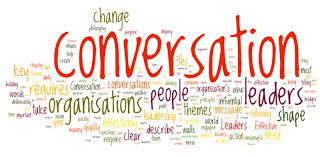If our most-used words are anything to go by, we spend too much time on Google and are obsessed with smartphones. Is language that transparent?
How zeitgeisty are you feeling today? If you’re not awe-struck, you may want to check your credentials.
The Spoken British National Corpus recently released initial findings from a small pilot of its study into the words most characteristic of the decade so far. The study, by Lancaster University’s faculty of arts and social sciences, pinpoints the digital revolution and the US as the two main influences on how British people speak. “Essentially”, “treadmill” and “awesome” are the only three in the top 10 most characteristic words of the early 2010s that don’t directly relate to the internet.
The report’s early findings can tell us a lot about how we communicate with each other, and what changes have occurred since the early 90s – the last time a study was completed to the same scale.
Here’s the question I’m going to answer: in 100 years, if people look back at the results of this study, what are they going to think about us?
Less marvellous, more awesome
When people picture our time, they’ll imagine us taking an hour to walk to the corner shop. A pigeon, a tree – absolutely everything, they’ll think, made us stop to take a deep breath into a paper bag because it was so utterly, extremely and ineffably awesome enough to reduce us to a maudlin, blubbering mess.
Nowadays, we’re less likely to simply marvel at things, and more likely to experience awe. We’re far more easily impressed than we used to be, and far less reserved when it comes to voicing it. There are no such things as quiet pleasures, only loud declarations of how dumfounded we are by absolutely everything.
Even this TED video, watched by more than half a million people, wasn’t enough to dissuade us saying the word so frequently. Although it does tell us that “awesome” is now replacing “thank you”.
The word “awesome” is so pervasive in our utterly normal everyday lives that future generations might think we really did live in a time that warranted awe every 20 minutes.
No pussy riot
The redundancy of “pussy” will be proof we’re a generation less fond of out-of-context rudeness. It will also be a nod to our busy lives – we all know what a cat is and therefore don’t have the time to call it two words. Perhaps we’re also growing less fond of cats and don’t want to make them sound cuter than they are.
If we carry on this way, our successors won’t even know what a “bunny” is, and will talk to newborn puppies with the same tone we’d reserve for a job interview. They’ll think we’re soppy for even calling it a cat – they will refer to it as a “mousetrap”.
Essentially, it’s like this
We like to give people things in a nutshell, gently ease them into what we’re saying – and we’re also fond of tired metaphors like “in a nutshell”.
We want people to think we’re simplifying things for them. What we’re about to explain is so comprehensive, so inextricably complex that we can’t fathom what the consequences would be if we didn’t break it down.
Of course, in 100 years people will have figured out how to live in floating houses, so prefacing an explanation of how a pencil case opens with “essentially” won’t seem so impressive.
What is this ‘Google’?
Just as this conjures ridiculous images of people lugging catalogues around, in a century people will think of us with the same pity. We had to rely on a search engine, they will cry as their robots hold a tissue over their eyes before the first sympathetic tear has formed. But they’ll feel even worse for those who came before us, and wonder how ingrained catalogues must have been in their lives that they came up in conversation so often.
Lifedevices
We can’t just call them phones, we like to attribute human tendencies to the clever little people we carry around with us, AKA smartphones. Future generations will assume we pour tea from hyperactivekettles, cook food in extrovertedmicrowaves and detangle our hair with sadisticbrushes.
Too much time in the gym
The study says that “treadmill” didn’t occur in the 1990s data, and that its prevalence now could be part of a wider trend of increased health awareness.
What it really shows is that we hate the outside world so much we’d rather stare at a wall while we exercise, and that the only thing we love more than wall-staring exercise is constantly talking about it. It might also have something to do with some workplaces now offering treadmill desks – we’re no longer at work, we’re “on the treadmill”.
I prefer peanut butter
Marmalade used to be “one of the country’s most used words”, according to the study. So what happened? Too many choices of cereal took over, and we finally realised marmalade is disgusting.
America hasn’t just given us the word awesome – there’s evidence that its cultural staple, peanut butter, has overtaken sales of marmalade.
Alongside crumpets and “splendid”, what used to be something evocative of Britishness has been overtaken by its American competitor. Future generations won’t be blamed for thinking of us as discerning, if a little ruthless.
Increase in calories
The study says: “Words like ‘calories’ are much more common today than they were.” My guess is that 90% of calorie talk takes place in offices. Just like exercising on a treadmill, we like to vocalise our inner calorie mathematics dialogue (which, to anyone who does this, is really, really interesting).
Future generations will despair at another example of us turning healthy decisions into everyone else’s business. At least we can burn off our peanut butter calories on the irascibletreadmill.
Jessica Brown
